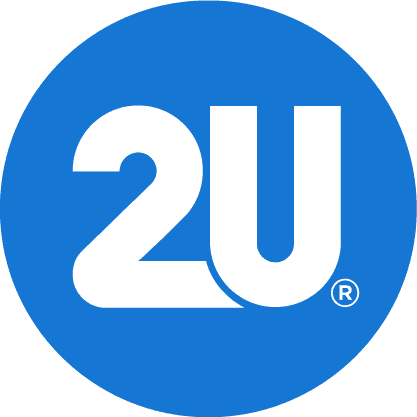Or listen in your favorite podcast app
Apple Podcasts / Google Podcasts / Spotify
Eliminating the back row in education is not just a metaphor for James Kenigsberg, it’s his personal mission. When James, the founding CTO of 2U inc., immigrated to America from the Soviet Union, he discovered technology could not only be a pathway to a career, but it could also be a conduit to scale anything that piqued his interests. On this episode of IT Visionaries, James discusses the journey that led him to 2U and the challenges of changing the online learning experience.
3 Key Takeaways
- 2U is an education platform that produces high-quality content in conjunction with Universities
- Online degrees had a bad perception and failed to replicate the educational experience
- Partnering with universities is a necessity to give credibility to classes and programs
For a more in-depth look at this episode, check out the article below.
Eliminating the back row in education is not just a metaphor for James Kenigsberg, it’s his personal mission. When Kenigsberg, the founding CTO of 2U inc., immigrated to America from the Soviet Union, he discovered technology could not only be a pathway to a career, but it could also be a conduit to scale anything that piqued his interests. Kenigsberg joined IT Visionaries to discuss how his time with the Princeton Review provided a pathway to make higher learning more accessible, how his team is changing the way online learning is taught and perceived, and the challenges that lie within disrupting an ecosystem that’s been around for decades.
As founding CTO, Kenigsbergg directs 2U’s technology functions and efforts to build an academic product that delivers positive student outcomes, an efficient client relationship management system, and a secure, resilient, and configurable architecture. But Kenigsberg didn’t always know higher education was where his career would take him, he just knew technology would be a part of it.
“I didn’t have that much of a background in technology, but I had enough to understand that technology wasn’t the main course,” Kenigsberg said. “The main course was figuring out what it is that we wanted to do using technology. Technology for us was sort of the fabric that brought it altogether.”
It was not until a stint working with the Princeton Review that Kenigsberg realized that he could help scale the education system. While working with students to provide them with the tools to ace exams, he began looking at the higher education system through a different lens.
“We were always in this weird place of hacking education, whether it was creating adaptive algorithms to help students constantly be on the edge and being able to deliver constantly hard and tough questions,” Kenigsberg said. “Being able to use technology to translate those things to create Parada reports for students that they would be able to know which 20% of the skills will give them 80% of the gain. All of that really taught me at the Princeton review how to look at education slightly differently.
That lens led Kengisber to 2U inc., a company that was on a collision course with an education system that had staved off disruption for decades and was an ecosystem struggling to adapt to the online environment. But a problem persisted. While companies and universities were making strides in providing online degrees, none of them replicated a true education experience.
“We were having dinner somewhere and someone at some point said online degrees are kind of sub bar, they’re bad,” Kenigsberg said. “We realized similar things sort of happened with E-Commerce.”
Kenigsberg related those early days of online higher learning to the adaptation of online shopping. Customers would look at a product via a website, but still felt the need to touch and feel a product.
“People would say crazy things like, ‘I would rather go to the store to buy it if it’s the same price online or in-store,’” Kenigsberg said. “Now no one even remembers when the last time they used the word like e-shopping, even for younger folks. Everyone just calls it shopping and it would be crazy for someone to drive to the store to buy something for the same price that’s available online.”
The epiphany led to a desire to alter the way people see and evaluate online education. Not just as a pathway to a new career, but a tangible, personalized learning experience for each individual and disruptor to institutions that had been doing education for hundreds of years.
“How do we bring the knowledge of these universities that have been around for hundreds of years to online?” Kenigsberg said. “Yale is 75 years old in America. So these are some of the oldest brands. They’d be doing education for a long time.”
Kengisberg saw this challenge as an opportunity to bring their know-how of operation technology and technology-enabled services to the industry to make it every bit as great as an on-campus program. To build the product with the credibility and scale desired, 2U realized they could change the landscape themselves, but they needed to partner with Universities to build credibility, to scale and lend on their knowledge and skills.
“We realized that partnering with great universities was a necessity to keep education as great as it has been for hundreds of years,” Kenigsberg said. “We’re there to create more access to it, to scale it, and to help our students and faculty get through it.”
2U offers three distinct products: degrees with great universities, boot camps where students attend physical classes on campus, and short courses concentrated on upskilling.
Kenigsberg has a saying: “A good idea is when two-thirds of people disagree with you.” And while providing education at scale is a great way to upskill students, changing an ecosystem that relies on dollars from physical students is a difficult task.
“Approaching technology in higher ed is hard,” Kenigsberg said. “There’s a lot of stakeholders, there’s a lot of systems that are bought through all kinds of RFP processes and long term contracts. A lot of universities don’t run like businesses. They unnecessarily value the bleeding edge as much as they value taking on a little less risk in some cases.”
What Kenigsberg and 2U learned when approaching institutions is to not ask for things that were impossible, but feasible. Led by applications like Salesforce and AWS, 2U created flexible frameworks to tailor coursework and systems to individual universities and their needs.
“The harder it is for us to find whether it is clinical rotations or social work placements for the students, what we begin to realize is that we are also creating access to that specific field in the area, which didn’t have it before,” Kenigsberg said.
Their approach worked. Today, 2U offers coursework for students all over the country. From educating students in the military, to those in remote locations. The goal remains the same: provide a unique, higher education system that works for the student and the university.
“Each of our courses will have more highly produced video content than the entire season of Game of Thrones,” Kengisberg said. “Last year we did almost 700 courses. To make sure we are accessible, to make sure that we are resilient, to make sure that we’re producing a good flow for students and they’re and to and feel like they’re on the same platform that’s helping them achieve their goal. Whatever it might be, was really important to us from the beginning.”
Today, 2U Inc. classes offer 10 million minutes of subtitled content, making them readily and easily accessible to a wide scope of students. Their videos are produced with real actors, social workers and everything needed to provide a first-class experience.
“Whether building internally or integrating off the shelf, we need all to work for the students and that’s what 2u OS is about,” said Kenigsberg.
—




